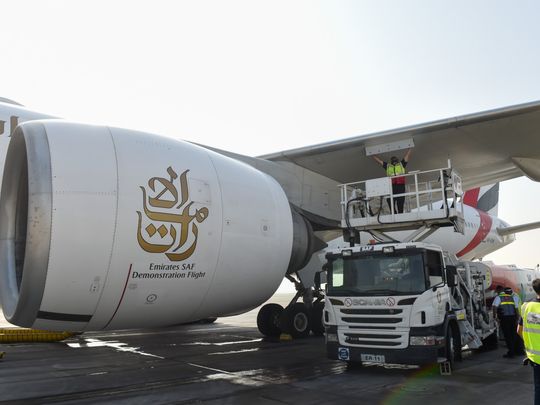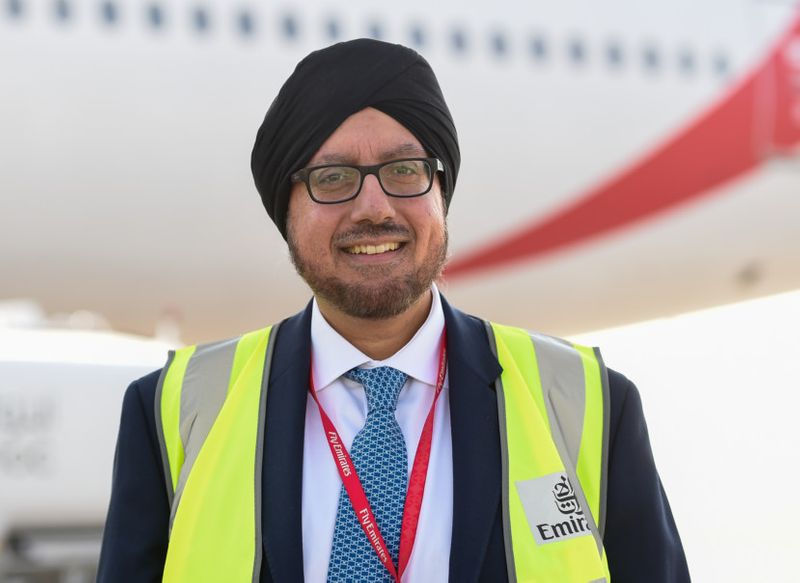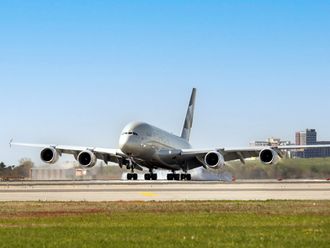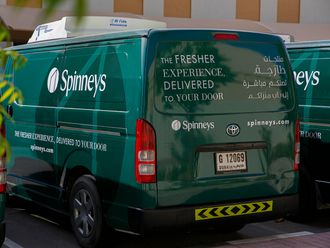
Dubai: The UAE is well placed to source most of its future aviation fuel needs from sustainable alternatives and renewable sources, a top Boeing official said on Monday.
UAE’s national carriers Etihad Airways and Emirates, have made significant strides in testing sustainable aviation fuel (SAF) over the past couple of years. Furthermore, since the UAE has made substantial investments in renewable energy through companies like Masdar, the Emirates is well placed to scale the production and manufacture of sustainable aviation fuel (SAF), said Kuljit Ghata-Aura, President of Boeing in the Middle East, Turkey and Africa. “The UAE is also hosting the upcoming COP28 later this year,” said Ghata-Aura. “The use of renewable resources must be harnessed to bring SAF to scale, like what the UAE is doing.”
Ghata-Aura also confirmed that the Boeing Company will only manufacture aircraft capable of flying on 100 per cent SAF from 2030.
‘Will to produce SAF’
“There is a political will to produce sustainable aviation fuel here for a good reason. I mean, one in 10 jobs in the UAE are aviation-related,” he stated. The comments from Boeing came after Dubai’s flagship carrier, Emirates, successfully completed a demonstration flight using 100 per cent SAF in one of the two engines on a Boeing 777-300 ER wide-body aircraft.

SAF, widely considered in the aviation sector as the most significant contributor to reaching sustainability goals, is produced synthetically or from renewable sources, said Ghata-Aura. “The use of SAF can result in up to an 80 per cent reduction in the life cycle of carbon dioxide emissions,” he stated.
Boeing, one of the biggest aircraft manufacturers in the world, has been collaborating with UAE carriers as part of the global aviation industry’s push to meet carbon emission targets. Aside from its collaborations with Emirates, Etihad Airways partnered with Boeing as part of the 2020 ecoDemonstrator programme. The airline used SAF on several test flights at blends between 30 and 50 per cent. Etihad’s iconic ‘Abu Dhabi for the World’ aircraft used 50 per cent SAFs to reduce 60 tonnes of CO2 compared to regular jet fuel use.
Testing SAF is key
“The ultimate path which needs to be followed at the moment has to do everything with these tests (by the airlines). We have to continue testing SAF on these flights. On flights like these, we are just going to collect vital data, add it to these types of activities that are going on all around the world, aggregate it, analyse it, and then get to a path to certification,” he said. Ghata-Aura said the data from test flights would help OEMs such as Boeing ensure that the certification for piloting SAF-powered flights would be 100 per cent safe.
Following this, authorities and regulators would be happy to certify 100 per cent sustainable aviation fuel for commercial operations. “That’s where you’re going to see the advantage of 80 per cent lifecycle reduction in CO2 emissions,” he said.
When will SAF become affordable?
However, despite the strides taken by these aerospace companies, SAF is not a readily available or affordable commodity. In the United States, SAF costs, on average, $9.23 per gallon as of earlier this month, according to aviation data site Global Air. Standard kerosene-based jet fuel sits at an average of $7.03 per gallon. Several airlines worldwide, including Cathay Pacific, British Airways, American Airlines, KLM, Lufthansa, and many more, have shown a keen interest in driving SAF forward by signing multi-million dollar purchasing agreements.
The Boeing official said entire ecosystems, including regulatory action, must unite to enable SAF’s scale-up in the aviation sector.
“We don’t have enough SAF to make it particularly affordable, and the scale-up process will involve action from every part of the aerospace ecosystem, government, regulators, original equipment manufacturer (OEMs) such as ourselves,” said Ghata-Aura. While there is demand for SAF, there isn’t enough supply. “There is enough feedstock, but we have to boost investment in SAF collectively,” he added.












